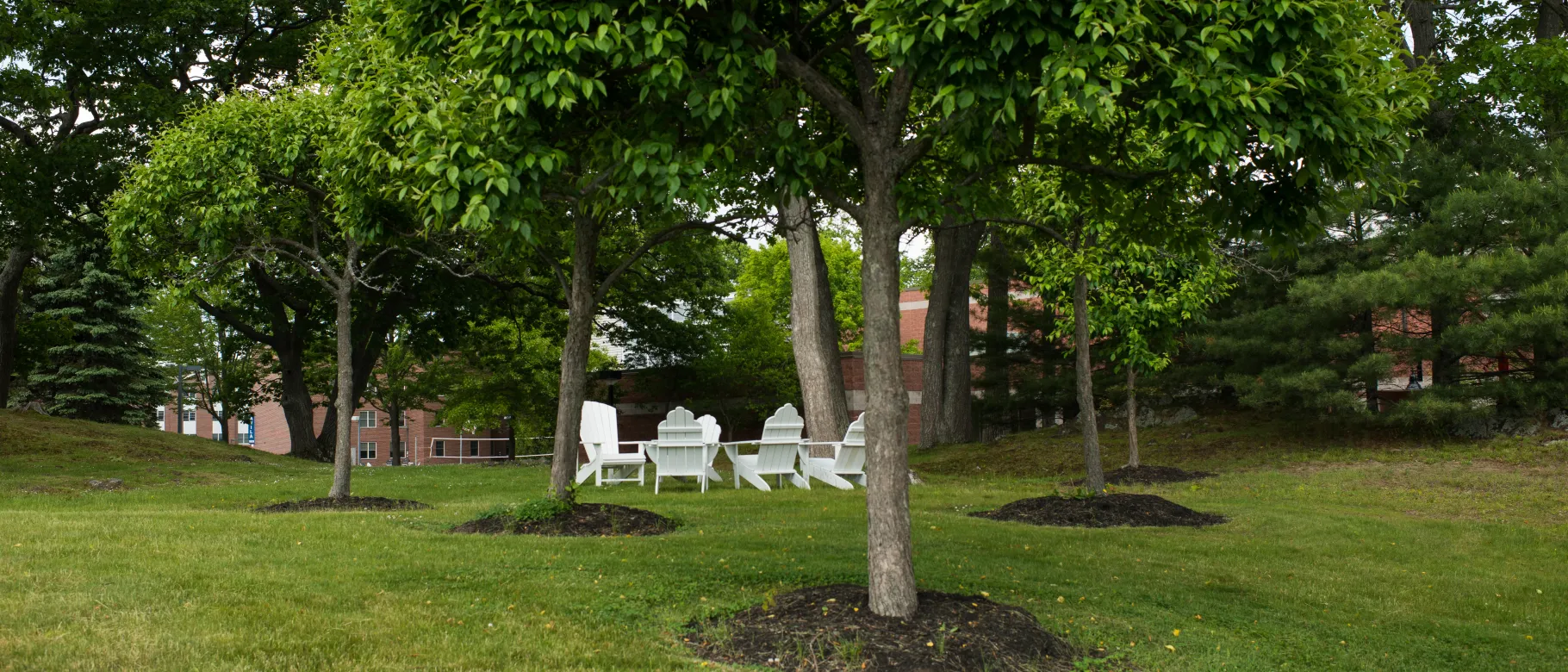UNE receives second Project Canopy grant to develop arboricultural management plan

The University of New England has received a second Project Canopy Assistance Grant from the Maine Department of Agriculture, Conservation, and Forestry to support the development of an arboricultural management plan for both of its Maine campuses.
The $20,000 grant — a combination of state and matching funds — will back the creation of a plan to guide tree planting, upkeep, and sustainability on the University’s campuses, as well as fund internships for student research and classroom engagement. This second grant expands upon the inventory conducted under a previous Project Canopy grant, awarded in 2021, that funded the design, creation, and implementation of a digital campus tree inventory developed using geographic information systems (GIS) technology.
The project’s goals are to use the tree data collected from the previous project to prioritize veteran tree sustainability and incorporate such practices into instructional curriculum, explained Michael Duddy, J.D., M.P.P.M., adjunct assistant teaching professor in the School of Social and Behavioral Sciences and School of Marine and Environmental Programs. Participating students will partake in long-term, longitudinal studies using growth plots on campus to measure tree growth in urban versus forested environments, which will help inform best practices for future tree planting.
Students who will engage with the project may include those living in the Green Learning Community or students taking courses such as Campus Sustainability, Application of Geospatial Science and Technology, Gulf of Maine Field Studies, Plant Systematics, and even Environmental Literature.
“This grant provides yet another opportunity for students to get out of the classroom and gain real-world experience, where they’ll learn not only about the maintenance and growth of trees but also the value of engaging with multiple stakeholders in support of a project,” remarked Pam Morgan, Ph.D., professor of environmental studies. “It will also allow us to continue to protect and enhance the many trees we are so fortunate to have at the University of New England.”